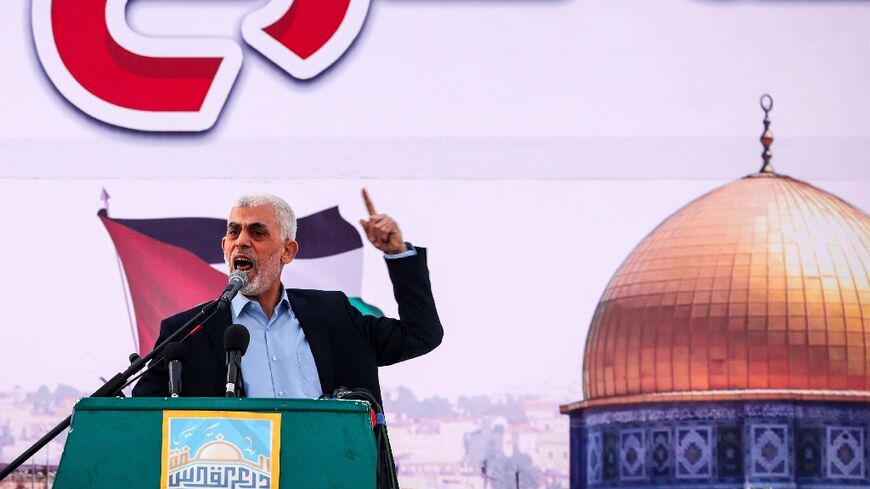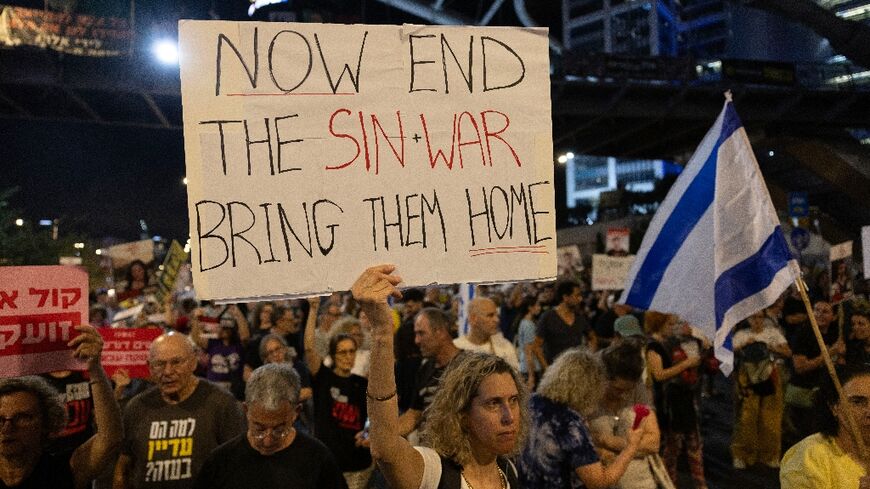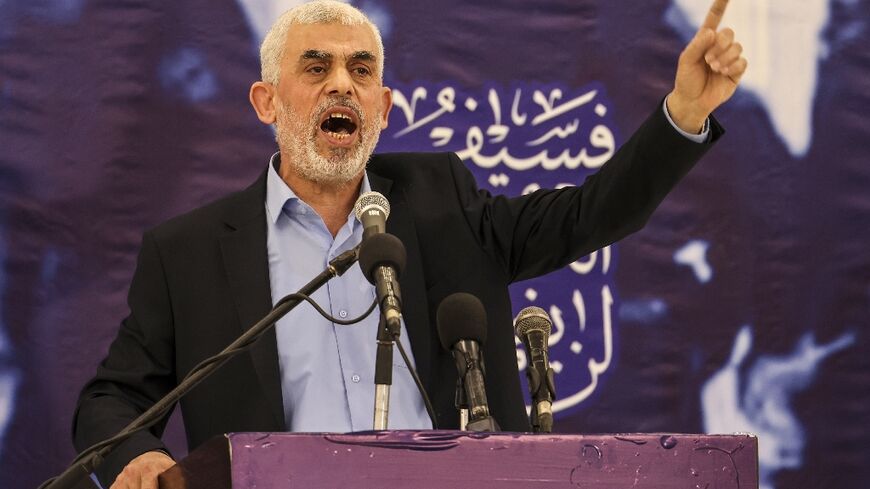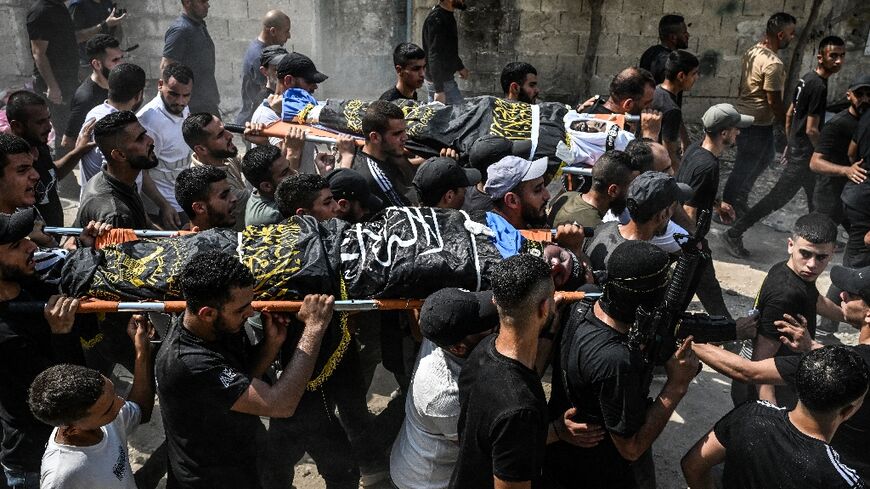Sinwar killing spurs Gaza hostage hopes and fears
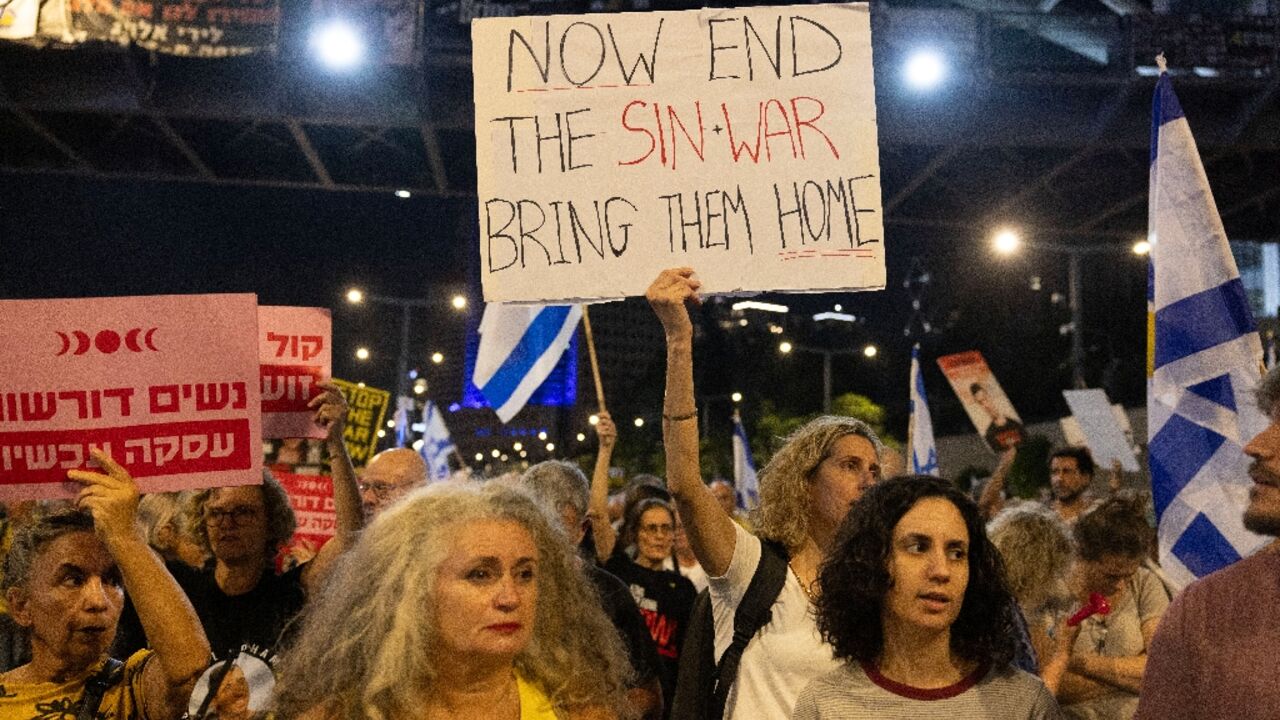
The killing on Thursday of Hamas leader Yahya Sinwar spurred renewed calls for the release of scores of Israelis held hostage by the Palestinian militant group in Gaza.
As world leaders urged Hamas to release the hostages, their families and supporters voiced optimism that the killing of the mastermind of the October 7 attacks could give fresh life to talks on the hostages' release.
But despite the death of a leader widely seen as taking a hardline stance in negotiations for a hostage deal, analysts warned of the danger from a power vacuum left in his wake.
Attending a Tel Aviv rally for the hostages and their families just hours after Israel announced Sinwar's death, Sisil, 60, who gave only her first name, told AFP it presented a "once in a lifetime opportunity" for "a hostage deal to end the war".
Yoram, a 50-year-old Tel Aviv resident, who also gave just his first name, called the moment "frightening".
"Nobody really knows what is going to happen now," Yoram said. "That's why I came over here to support the families".
The Hostages and Missing Families Forum, an Israeli campaign group, said it "welcomes Yahya Sinwar's elimination".
It said he was "responsible for the murder of thousands and the abduction of hundreds" and identified him as "one of the major obstacles" to an agreement.
"We call on the Israeli government, world leaders, and mediating countries to leverage the military achievement into a diplomatic one by pursuing an immediate agreement" for the release of all hostages held in Gaza, the group added.
Of 251 hostages seized by Hamas in the October 7 attack, 97 remain in Gaza, including 34 who Israeli officials say are dead.
-'Opportunity'-
Vowing to continue the war against Hamas, Israeli Prime Minister Benjamin Netanyahu called on the militants to free the hostages.
"Whoever lays down his weapon and returns our hostages -- we will allow him to go on living," he said.
Israel's top diplomat Israel Katz said Sinwar's killing "creates an opportunity for the immediate release of the hostages and paves the way for a change that will lead to a new reality in Gaza".
Months of back-and-forth negotiations mediated by Qatar, Egypt and the United States have failed to secure a deal to release the hostages and halt the fighting between Hamas and Israel, apart from a one-week truce beginning in late November during which scores were released.
Negotiations have remained stalled after in-person talks in August in Egypt and Qatar broke up without a final agreement.
In the face of the external calls for a deal, both Israel and Hamas -- which Sinwar took overall control of shortly before the August talks -- have publicly signalled deeper entrenchment in their negotiating positions.
US President Joe Biden said Sinwar's death was a "good day" for the world, adding that the killing removed a key obstacle to a Gaza ceasefire and hostage deal.
Qatar's foreign ministry said in a statement following the announcement of Sinwar's death that its Prime Minister Sheikh Mohammed bin Abdulrahman Al-Thani held a call with US Secretary of State Antony Blinken on "the latest updates on joint mediation efforts to end the war".
-'Grave danger'-
French President Emmanuel Macron called for the release of "all hostages still held by Hamas".
Germany's Annalena Baerbock called on Hamas to immediately release all the hostages and lay down its arms as she branded Sinwar "a cruel murderer and a terrorist".
However, analysts cautioned that the uncertainties created by Sinwar's killing posed a potential threat.
Guy Aviad, an Israeli expert on Hamas said: "Although we eliminated Sinwar, for the time being, there is a grave danger to the hostages."
The military historian said it was believed the dead leader's younger brother, Mohammed Sinwar, had been placed in charge of the hostages' fate and "will try maybe to take revenge for his brother's death".
Middle East analyst Andreas Krieg warned killing Sinwar could embolden Netanyahu and harm the hostages' prospects.
"Netanyahu has done everything he can to torpedo any mediation talks, and he can now make the case that he's much closer with his military-only strategy," the King's College London analyst said.
"Getting the hostages back has not been a priority for Netanyahu, and I don't think that's going to be the case moving forward," Krieg added.
Following the last round of August talks, Netanyahu has doubled down on his calls for Israeli control of the so-called Philadelphi Corridor on the Gaza-Egypt border -- a key sticking point in negotiations.


